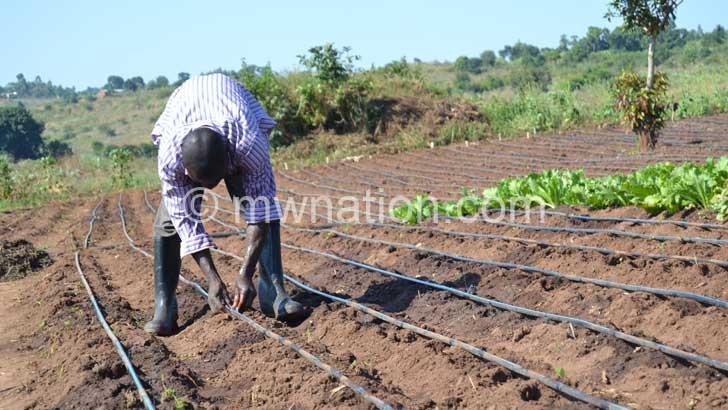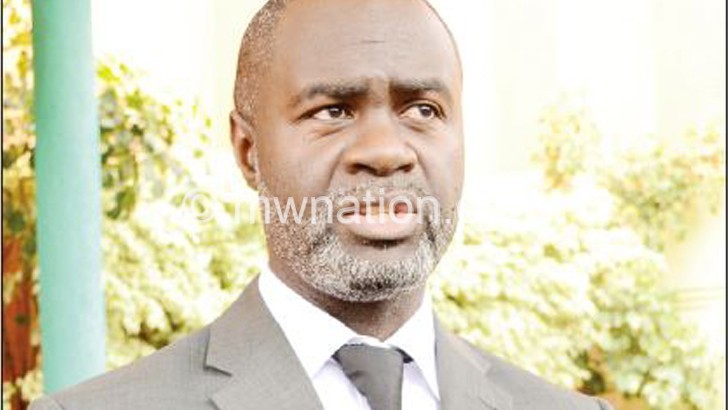Agricultural policy filters in Malawi
If one takes an exploration of all the development policy documents that have been developed in Malawi over the past 50 years, one will most certainly note that one familiar statement is constantly being mentioned. This statement is that “agriculture is the mainstay of the economy,” or “agriculture is the economic backbone of the country”.
The importance of agriculture and the agri-food system has consistently been recognised in almost any food policy statement, agricultural development strategies, party manifestos and national economic development plan as a prerequisite for development.

Thus, from the first national development plan of Malawi to the current national vision and all the long and medium development plans and strategies talk of how important agriculture is to the economy and the need to do more to transform the sector. For instance, the first national development plan for the post-colonial Malawi, the Nyasaland Development Plan (1962-1965) states: “…Production in agriculture must increase at a phenomenal rate so that reliance on it as a source of income has meaningful content not only for the few but also for the masses. It will do so only if there is a sustained and effective campaign to encourage and assist the masses to take up crop farming. This is what the Government sets out to do in the present plan” (p.46).
Almost 57 years after this statement was made, government has developed another long term vision, the Malawi 2063 and it still states: “…Transformation of the agriculture sector is central to the achievement of our Vision not only for the welfare of citizens, but also given that the linkage between the sector and industry would spur socio-economic development” (p. 14).

All the development policy documents set out in great detail actions for the government to do for agriculture because of what agriculture could or should do for the country.
However, there has always been a disappointing mismatch between the text of the policy and the realities on the ground. Thus despite all the beautiful and seemingly well-intended plans about agriculture development and attainment of food security, millions of people who had the privilege of passing through earth as Malawians were born, live, and die poor, hungry, and malnourished. Most of these unfortunate people lived in rural areas and directly or indirectly depend for a large part of their livelihoods on agriculture.
Although dramatic agricultural growth has been a critical driver of poverty reduction in some parts of the world, in Malawi its performance has been disappointing, with low or negative average per capita growth over the past years. A recent paper by Mwapata Institute indicates that over the past 20 years, the agriculture sector has been growing at an annual rate of 2.1 percent, while population has been growing at 2.7 percent. This shows a negative per capita growth for agriculture despite beautiful policies and the huge donor projects and public investments in subsidies.
The question that we may have is; where are we getting it wrong? Why is it always that we fail to translate the text of policy into action that brings about change? What are the filters that stand in between the text and the spirit of policy and its desirable outcomes?
A lot of pundits have provided answers to these questions and my desire today is not to dispute what has already been suggested but to add to the debate. At times I feel that the text of the policy is thrown into the dust bin and forgotten once the policy is launched. The meso-economy of the agriculture sector in Malawi is indeed a complicated environment because of how agriculture development is intertwined with politics, social life and the economy. As such the implementation of agricultural policy has to undergo a lot of compromise to satisfy different demands and interests placed on it.
However, in all this, political leadership is of the essence. Have you ever wondered why despite the so much technical knowhow we have in the agriculture sector in Malawi, not much seems to be achieved? Our weak and non-functional institutions that govern agriculture can be revived at the direction of strong leadership, more especially the political leadership. The decision to spend billions of kwacha on subsidies and not on research or human resource development is made by leadership!
Whether the focus of agriculture investments will be towards food security or development is a decision of leadership. The motivation of the technical personnel in the sector is by the kind of incentives that leadership provides.
Last year, junior technical staff members in the Ministry of Agriculture wanted to down tools and withhold important data. A lot of qualified technical people are trekking out of the sector because the motivation to work and contribute is diminishing. The equalisation effect of demotivated technical staff has a huge negative effect on the implementation of policy and it is leadership that can bring back the lost steam and inspire the workforce to action. There are a number of important institutions in the agriculture sector for growth and transformation. Today, I will just mention three and these are the Joint Sector Review (JSR), the District Agriculture Extension Services System (Daess) and the Agriculture Development and Marketing Corporation (Admarc).
The JSR is supposedly the highest platform for policy dialogue amongst the stakeholders in the agriculture sector. It is supposed to be a space where sector players hold each other accountable for failings of the sector. However, this forum is not fully achieving its purpose because the National Agriculture Investment Plan (NAIP) is being implemented without a clear division of labour in the agriculture sector.
With an incomplete functional review of the Ministry of Agriculture through a core functional analysis, the roles of the sector players are not clearly defined and as such there is no basis for holding others accountable. Hence, the JSR is a platform for government to showcase what it has done.
The Agriculture Sector Performance Report is as such not complete if it misses the contribution of the NGOs and private sector to agriculture development. The JSR as such achieves little. The Daess is another important platform but this is another well-decorated but non-functional institution. In some districts, the Daess is almost dead. It is an agriculture platform being implemented through a local government structures, as such it has become an orphan. It lacks funding from either agriculture or local government.
The Aswap Review indicated that most of the agriculture funding is still centralised, with only one percent of Ministry of Agriculture budget transferred to the districts as such the Daess, though important, it is dying naturally.
The other important institution that can assist agriculture transformation and ending poverty is Admarc. This institution if given the necessary support has a huge potential of turning things around. Malawi has few completed value chains. The little exportation we do is generally of raw products. However, Admarc can turn the situation around—if it can revive the processing facilities it once had.
I was discussing the other day with a friend as to what could happen if entities like Press Agriculture would convert about 2 000 hectares of much of its idle land to cassava production and open a processing plant in Kasungu to manufacture all sorts of products that cassava could bring or put 5 000 Holstein dairy cows on a 1 000 hectares of some abandoned estates in Mchinji, Malawi could be an exporter of milk products and livelihoods of millions can be changed.
My conclusion, therefore, is that the biggest agricultural policy filter in Malawi over the past years has been leadership and the state of our agriculture is not as a result of the absence of policy or resources but leadership. We can blame the meagre performance of our agriculture on anything but at the end of the day; it is the decision of leaders that matter, whether right or wrong.
*Nkhono is an expert of agricultural policy and development






One Comment